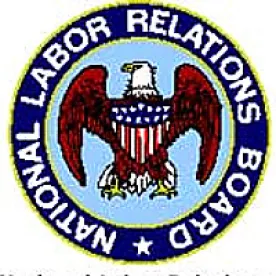The National Labor Relations Board’s General Counsel has assembled his latest wish-list of “hot-button” issues he hopes to present to the Board for decision when the right cases are presented to his office.
Because certain NLRB unfair labor practice cases “are of particular interest and would benefit from centralized consideration,” the General Counsel has determined that they “should be submitted to the Division of Advice” rather than decided by the Regional Office where the charge is filed. Memorandum GC 16-01, “Mandatory Submissions to the Division of Advice,” dated March 22, 2016, from General Counsel Richard F. Griffin, Jr., is addressed to all NLRB Regional Directors, Officers-in-Charge and Resident Officers. This will allow the General Counsel’s Office in Washington to make the decision whether to prosecute cutting-edge issues in certain cases.
The types of cases recommended for submission to the General Counsel’s Office Division of Advice are divided into three groups in the Memorandum. The first and second are most important because they offer insight into areas of particular interest to the General Counsel where he may urge the Board to change its interpretations of the NLRA in a suitable case.
The first group includes those matters that involve General Counsel initiatives or priority areas of the law and labor policy. Included in this group, among others, are cases involving: (1) the application of Purple Communications, 361 NLRB No. 126 (2014) to electronic systems other than email, (2) the applicability of Weingarten principles in non-unionized settings, (3) allegations that “English-only” policies violate the National Labor Relations Act, and (4) whether the misclassification of employees as independent contractors violates the NLRA.
Purple Communications held that employers generally could not bar employees from using company email systems for personal reasons, including union organizing, during non-work time.
The Supreme Court’s 1975 decision in NLRB v. J. Weingarten, Inc., 420 U.S. 251, held that unionized employees were entitled to the assistance of their union representative during investigative interviews by their employer that the employee reasonably believed might lead to his discipline. However, the Board has seesawed over whether Weingarten also should apply in non-union settings. The Board held Weingarten applicable in non-union settings in Epilepsy Foundation, 331 NLRB 676 (2000), but subsequently reversed itself in IBM Corp., 341 NLRB 1288 (2004).
The second group consists of matters that involve “difficult legal issues or the absence of clear precedent.” The General Counsel wants to review cases involving: (1) the rights of contractor employees to have access to the property where they are working to communicate with coworkers or the public, (2) whether novel forms of disruptive conduct, such as coordinated “shopping,” excessive use of loudspeakers, or corporate campaigns, constitute violations of the NLRA, and (3) the need to harmonize the NLRA with local, state or federal statutes or where potential or actual overlapping jurisdiction with other federal agencies exists, among others.
The Memorandum lists a total of 24 types of cases in the two groups that must be submitted to the Division of Advice, although it also recognizes that “the vast majority of cases may be processed without guidance from Headquarters.” In light of the Memorandum, 2016 and beyond should prove to be “interesting times” in labor law.






 />i
/>i

